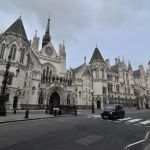Yukos v Rosneft: Russian Courts are not Independent
 The Yukos saga continued in English courts this month. In Yukos vs. Rosneft English High Court found an issue estoppel based on a Dutch court determination that Russian judgments annulling Yukos arbitral awards resulted from a partial and dependent judicial process
The Yukos saga continued in English courts this month. In Yukos vs. Rosneft English High Court found an issue estoppel based on a Dutch court determination that Russian judgments annulling Yukos arbitral awards resulted from a partial and dependent judicial process
The facts of the case were as follows. Yukos Capital SARL (“Yukos”) claimed interest of over $160 million for the period between 2006 and 2010 during which OJSC Rosneft Oil Co. (“Rosneft”) refused to satisfy four arbitral awards rendered and later annulled in Russia. Yukos was a member of a Russian group of companies involved in oil production. The group was broken up and Rosneft, owned by the Russian government, acquired the majority of its assets.
Based on intra-group loans made by Yukos to its subsidiary Yuganskneftegaz (later acquired by Rosneft), in September 2006 Yukos obtained four arbitral awards against Rosneft for the total of US$425 million, rendered under the rules of International Commercial Arbitration Court at the Russian Chamber of Commerce and Industry in Moscow.
Subsequently Yukos initiated enforcement proceedings in the Netherlands. However, on Rosneft’s application the awards were then set aside by Russian courts. In a judgment of 28 April 2009 the Amsterdam Court of Appeal refused leave to enforce the Russian judgments. The Dutch court determined that the Russian decisions annulling the awards should not be recognised as they were “the result of a partial and dependent judicial process.” Accordingly, the Russian arbitral awards were enforced and in August 2010 Rosneft paid Yukos the US$425 million.
The issue before the English court was whether the decision of the Dutch appeal court gave rise to an issue estoppel preventing Rosneft from denying that the Russian decisions annulling the awards were not impartial. The court found that there was estoppel. The Dutch court found as a fact that the annulment decisions were the result of partial and dependent judicial process, this was a necessary part of its decision to permit enforcement. That decision would be res judicata in the Netherlands.
Following DSV Silo und Verwaltungsgesellschaft mbH v Owners of the Sennar, English court found that all requirements for issue estoppel had been satisfied and the factors relied on by Rosneft did not amount to “special circumstances” that could exceptionally prevent the estoppel. In particular, all the material on which R wished to rely upon could have been put before the Dutch court, but Rosneft chose not to do so.
Additionally, the court held that the act of state doctrine was not engaged if the validity of the act of the foreign state was not an issue (Berezovsky v Abramovich (2011)). English court could examine whether a foreign court system was lacking in independence notwithstanding that that might involve an examination of acts of the state which resulted in that lack of independence (Cherney v Deripaska (2009) and AK Investment CJSC v Kyrgyz Mobil Tel Ltd (2011)).
Earlier, in 2010 Yukos managed to obtain a freezing injunction against Rosneft and 11 other Defendants (Yukos Capital S.a.r.l v. OJSC Rosneft Oil Co & 11 Others (2010)), that covered money held in bank accounts in the UK, although the defendants were all incorporated overseas.
Several defendants argued that they did not hold the money beneficially for Rosneft. They submitted that they had full legal title to assets totally distinct from those belonging to Rosneft. The English High Court found that the correct test was to “consider the extent to which the defendant Rosneft has some interest in or control over the asset.”, and Rosneft’s interest was “formidable”.
The full text of the case was published as YUKOS CAPITAL SARL v OJSC ROSNEFT OIL CO (2011) [2011] EWHC 1461 (Comm).
Contributed by a London lawyer whose name cannot be disclosed because of a potential conflict of interest











